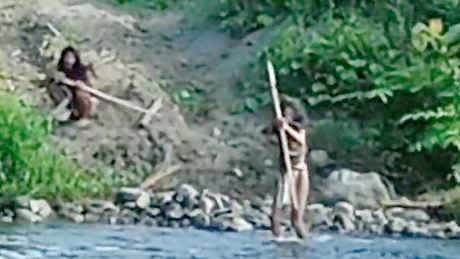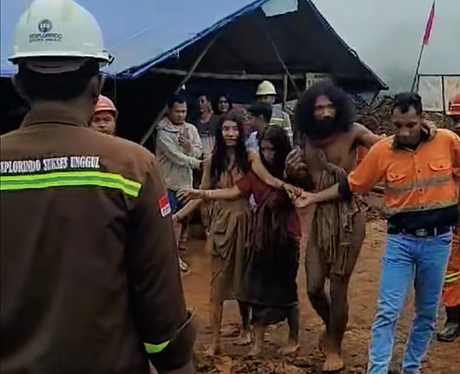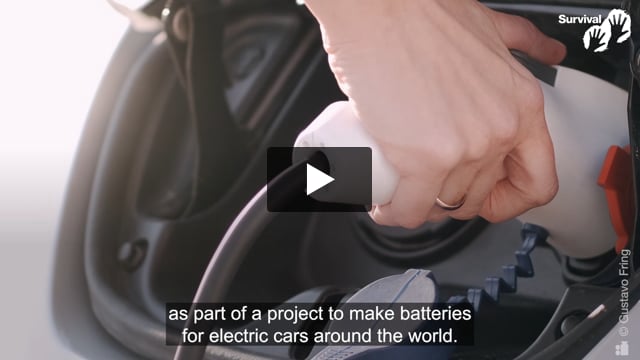Indonesia: German chemical giant BASF pulls out of major nickel project as uncontacted tribe’s fate hangs in the balance
June 25, 2024
 © Anon
© AnonThe German chemical giant BASF has pulled out of a $2.6bn project to refine nickel on the Indonesian island of Halmahera, after campaigners highlighted the plight of uncontacted people in the area.
The ‘Sonic Bay’ project, in partnership with France’s Eramet, was intended to refine nickel and cobalt mined by Weda Bay Nickel (WBN), whose operations are destroying the rainforest of hundreds of uncontacted Indigenous Hongana Manyawa people. Weda Bay Nickel is part owned by Eramet.
Survival International supporters had sent the companies more than 20,000 emails protesting at the plan, and Survival had repeatedly lobbied both BASF and the German authorities.
Survival’s campaign has revealed that much of the area being mined by WBN is the territory of uncontacted Hongana Manyawa people. A recent video showing an uncontacted Hongana Manyawa family coming to a mining camp to ask for food after their rainforest was destroyed went viral, and prompted senior Indonesian politicians to call for their land to be protected.
 © Survival
© Survival
Despite the scrapping of the refinery project, Weda Bay Nickel – which is the world’s biggest nickel mine – is currently set to continue. The nickel is destined for electric car batteries.
Tesla, which has signed agreements worth billions of dollars with Indonesian nickel and cobalt suppliers, recently announced that it was ‘exploring the need for a no-go zone’ to protect uncontacted Indigenous peoples. The statement has been widely interpreted as signaling its concerns about nickel from Halmahera because of the mine’s impact on the Hongana Manyawa.
Survival International’s Director Caroline Pearce said today: “This major announcement by BASF comes after sustained pressure from Survival and tens of thousands of our supporters, who have consistently said that the 'Sonic Bay' project would turbo-charge nickel mining on Halmahera – and accelerate the destruction of the uncontacted Hongana Manyawa.
“BASF's withdrawal means that they, at least, will not be complicit in the Hongana Manyawa’s destruction. But Eramet, and other companies, are still ripping up the rainforest and the uncontacted Hongana Manyawa simply won’t survive without it. They must stop now, for good, before it’s too late.”



